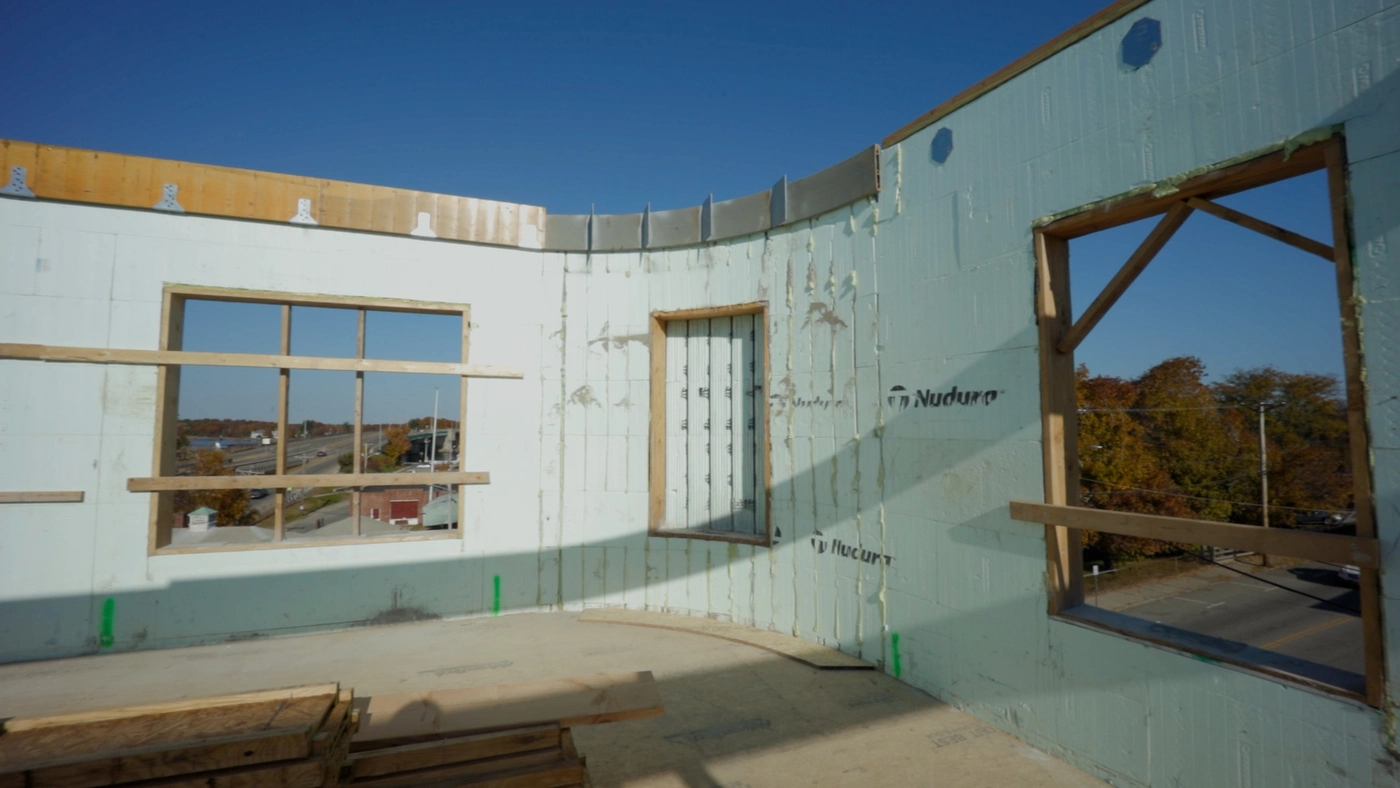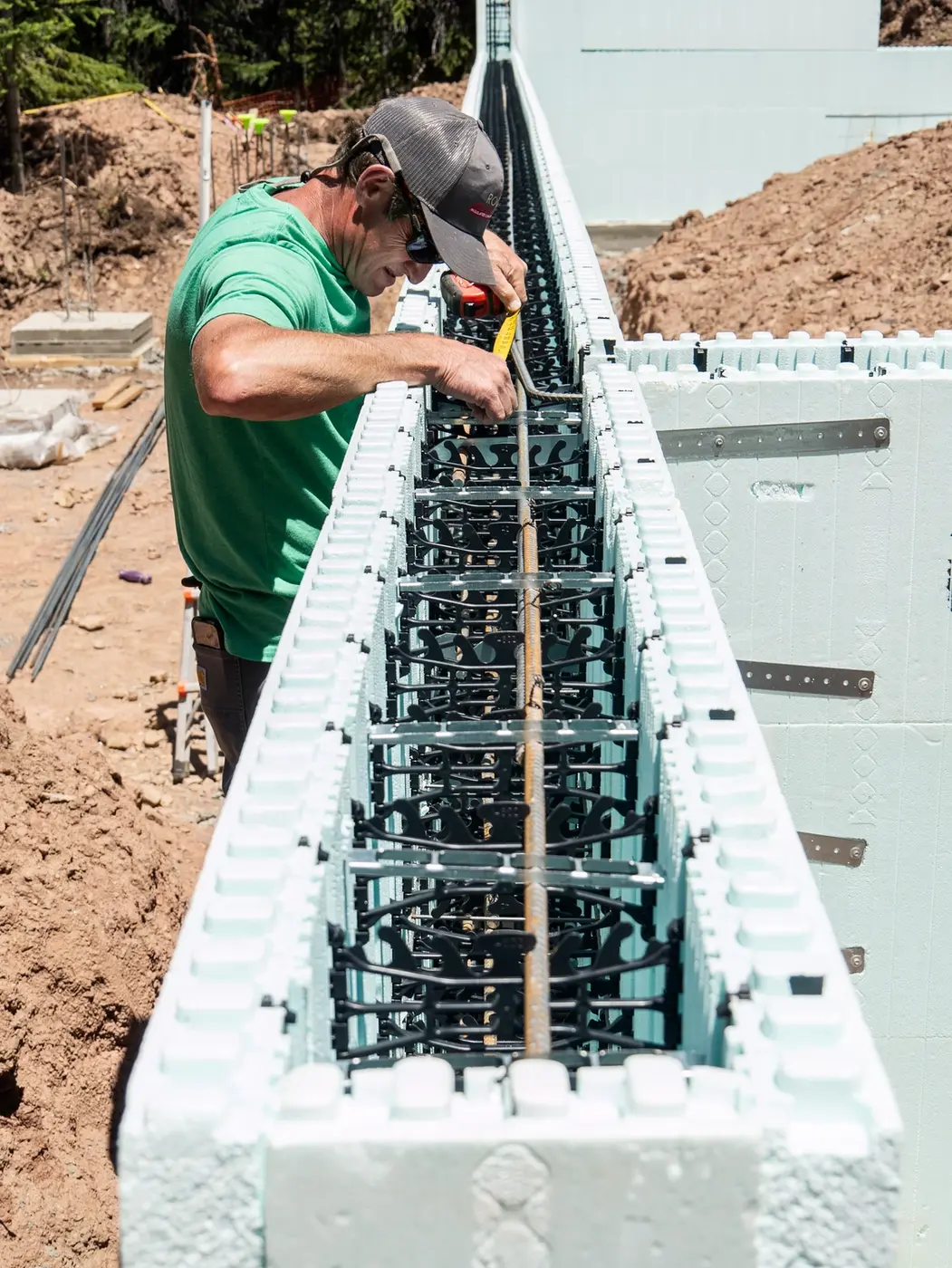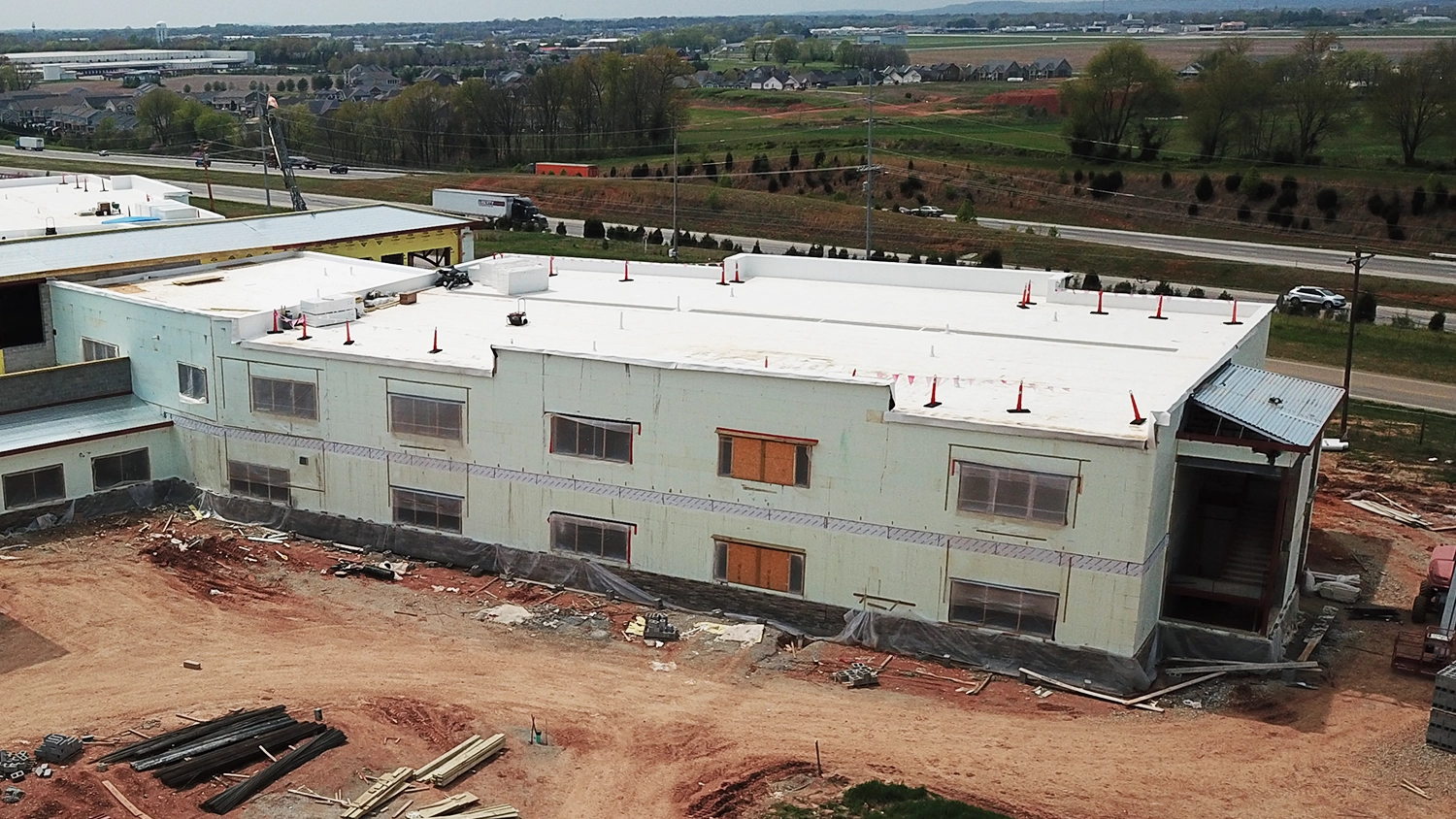

When designing modern buildings, creating quiet, peaceful spaces is often a top priority. Whether it’s a bustling healthcare facility, a vibrant theater, a thriving school or a packed hotel, controlling noise improves functionality, comfort and overall satisfaction. Enter Nudura Insulated Concrete Forms (ICFs). These innovative construction materials go above and beyond conventional building methods to deliver robust soundproofing and acoustic performance.
This blog explores the basics of ICF technology, how they dampen sound and their real-world applications in creating noise-free environments for healthcare, education, entertainment venues and multi-unit housing.
 What are Insulated Concrete Forms?
What are Insulated Concrete Forms?Insulated Concrete Forms are durable, high-performance wall systems made from two panels of expanded polystyrene (EPS) insulation, which are held together by plastic spacers and filled with reinforced concrete. Once installed, ICF walls provide exceptional thermal insulation, strength and sound attenuation compared to traditional wood-frame construction. Together, these benefits make ICF construction a preferred choice among architects and building owners keen on sustainability, durability and noise control.
Insulated Concrete Forms create a powerful barrier to block noises outside from disrupting the building’s occupants AND stopping sounds from inside the structure reaching folks outside. Here's how ICFs achieve their superior soundproofing capabilities:
The effectiveness of soundproofing is measured using the Sound Transmission Class (STC), which evaluates how well a building material or assembly blocks sound. The higher the number of the STC rating, the more effective the system is at reducing sound transmission. Nudura ICF walls with a six-inch concrete core have an STC rating of 52. In comparison, standard wood-frame walls with fiberglass insulation only score around 38. This dramatic improvement means significantly less noise passes through an ICF wall compared to other common construction methods.
In an ICF wall system, the two panels of continuous insulation (CI) combined with the solid concrete core work together to absorb and block sound waves at various frequencies. ICFs eliminate gaps and weak points common with wood-framed and steel-framed buildings, ensuring a completely sealed structure. This airtight quality is essential for minimizing the sound transmission between spaces, making ICFs ideal for environments where noise control is critical.
Soundproofing is particularly useful in the healthcare, education, entertainment and multi-family residential spaces. ICFs have proven their acoustic performance across these sectors to benefit owners and occupants alike.
Hospitals, clinics and medical facilities place a significant emphasis on quiet environments to support patient wellness and rehabilitation. ICFs help reduce disruptive external noises from road traffic, sirens or nearby construction, which is a common concern for hospitals in busy urban areas. Using ICFs for demising walls also minimizes interference from bustling corridors and lobbies from reaching adjacent patient and operating rooms. This sound reduction can improve both staff and patient satisfaction, so the healthcare section can benefit from building with ICFs to ensure that unwanted sounds don’t disturb sensitive areas.
 Educational Buildings
Educational BuildingsThe benefits of controlled acoustics in learning environments are widely documented, as quieter classrooms enhance concentration and reduce distractions for students.
ICF exterior walls can effectively block noises from playgrounds and highway traffic, and if used for dividing walls, can minimize sound from gymnasiums, cafeterias and between classrooms. This level of acoustic control allows teachers and students to engage in lessons without unnecessary interruptions.
The Cumberland Trace Elementary School in Bowling Green, Kentucky is a great testament to the sound-dampening advantages of ICF construction. Among other selling features, this school was constructed with Insulated Concrete Forms in large part due to its proximity to the adjacent I-65 highway. It has a media center with many of its classrooms facing the adjacent roadway, but with the ICF walls, the traffic is imperceivable from inside. Therefore, when the school district decided to construct a new school less than a mile away, they decided to also build it with Nudura ICFs.
 Theaters and Performing Arts Centers
Theaters and Performing Arts CentersFew places demand optimized acoustics as much as performing arts venues. From a whisper of spoken dialogue to heart-pounding music, these spaces need to control the flow of audio so that audience members can hear each artfully crafted moment clearly, while outside passersby are not disrupted.
With Insulated Concrete Form construction, theaters and indoor concert venues can achieve excellent sound attenuation by isolating noise both internally and externally. Amps and loudspeakers are no match for the noise cancellation of ICF walls, so community members outside won’t be disturbed by the performances.
For example, the Canterbury Woods Performing Arts Center in New York showcases the capability of Nudura ICFs. This 13,000-square-foot venue features Insulated Concrete Form walls that prevent noise from leaking outside and shield the audience from any external disturbances. This ensures productions are experienced without distractions, maintaining an immersive environment for up to 250 attendees.
Soundproofing is critical for multi-unit buildings like apartments, retirement homes, hotels and dormitories. Mixed-use buildings that have a combination of retail, offices, and residential spaces also require proper sound attenuation to prevent noise pollution between tenants.
Using Nudura ICFs for exterior and demising walls addresses interior and exterior noise challenges for these settings. Traditionally, occupants in multi-family housing are known to contend with thin walls that allow every conversation, footstep or appliance to be overheard. ICF construction virtually eliminates this problem to ensure greater peace and quiet, which also helps with occupant recruitment and retention.
The Lewis Building in Newburyport, Massachusetts is set at the corner of a busy intersection with a highway passing right above it. Knowing that the building would have both commercial and residential tenants, the design build team decided to use Insulated Concrete Forms which successfully dampens the traffic sounds.
Insulated Concrete Forms streamline noise cancelling strategies by building sound attenuation into the structural wall components without any extra steps or materials. ICFs work for a wide range of building types to meet the demand for quieter, more comfortable spaces, from hospitals and schools to performing arts centers and residential complexes.
By choosing ICFs for your next project, you’re investing in lasting noise reduction that enhances occupant peace of mind, alleviates community concerns and makes whole building and individual units more marketable. When you’re ready to design your next soundproof structure, look to Nudura to help you achieve your goals with Insulated Concrete Forms.